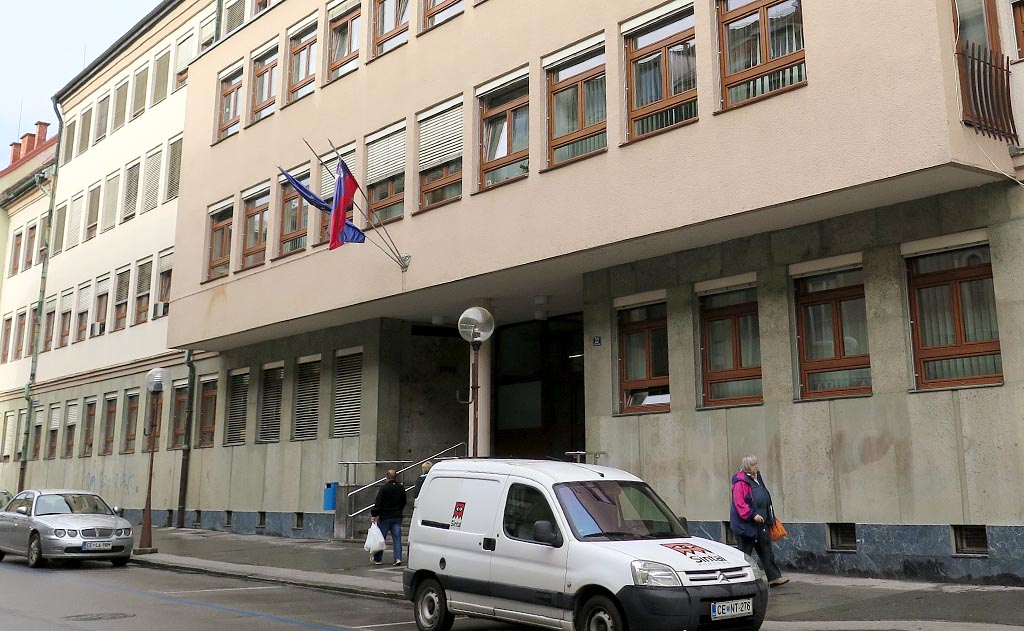By: Gašper Blažič
The trial in the Trenta case featured testimonies from two former employees of the now-defunct company Eurogradnje. It appears that the court aimed to determine whether the indictment’s claims were true – that the company in question served merely as an intermediary in providing some kind of “gift” for SDS President Janez Janša. The allegations stem from the time of his first term as prime minister when he exchanged a smaller apartment and property in Trenta for a larger apartment in Ljubljana.
Now that it has long been confirmed that the Trenta property was not overpriced – despite claims from the mainstream media (Necenzurirano, Mladina, and others) that Janez Janša allegedly received twenty times its actual value – the court, led by district judge Cvetka Posilovič, is trying to squeeze out the last possible pieces of information that could either confirm or refute the allegations made by the Specialised State Prosecutor’s Office (SDT) in the indictment. The prosecution claims that this was a major deal in which one of the accused profited significantly, while the other two allegedly benefited through commissions or rewards.
Witnesses remember practically nothing
Janša was absent from today’s hearing for justified reasons, as he is attending an international conference in Israel. However, a procedural complication arose because his lawyer, Franci Matoz, had previously informed him that only documentary evidence would be reviewed during the main hearing. The failure to summon witnesses in the previous month, however, disrupted this plan. Today’s witnesses, Boštjan Samotorčan and Robert Bičič, should have been questioned earlier, but they were initially unreachable. A hearing scheduled for March 18th was cancelled. As a compromise, the court decided to hear both witnesses who were present, albeit formally outside the main trial.
However, these testimonies yielded little success for the prosecution. Bičič, who appeared in court injured and was transported by official court transport, was responsible for the company’s bank account and authorised to handle cash withdrawals at Eurogradnje. He stated that he only knew about the Trenta case from media reports. He only collaborated with Mitja Majnik at Imos and knows a bit more about the Fiesa project, where he was responsible for sourcing subcontractors. He also previously knew the first defendant, Branko Kastelic, as they had once worked together at Gradbeno podjetje Grosuplje. However, he never discussed the Trenta case with anyone.
Samotorčan, a co-founder of Eurogradnje, which operated from 1999 until it went bankrupt in 2014 (with bankruptcy proceedings starting three years earlier), and a former project manager, gave similar responses. He claimed he knew nothing about the Trenta deal and emphasised that Eurogradnje was mainly a construction contractor. He could not provide any concrete details about Eurogradnje’s cooperation with Imos. Regarding Fiesa, he recalled visiting the site once in a professional capacity as a construction expert, but that was the extent of his involvement.
In short, another day of chasing shadows – this time, it ended remarkably quickly, in just an hour and a half. The testimonies made it clear that neither Imos nor Eurogradnje paid much attention to the Trenta property transaction. Most witnesses do not recall the details, and the deal would have likely been long forgotten if it had not been politicised and brought to court – primarily because one of the parties involved is now the leader of an opposition party.
The prosecution still claims it was a sham deal
According to some media reports, the court is attempting to clarify details about a €200,000 advance payment that Imos provided to Eurogradnje for a project in Fiesa. The prosecution claims that this payment was never accounted for and was merely a sham transaction to facilitate Eurogradnje’s purchase of Janša’s property in Trenta. However, court documents reportedly prove the opposite – that the advance was accounted for, albeit with some delay.
Side note: The (former) newspaper Finance (now just an online portal) and other media have labelled Eurogradnje as a “Jamnik family company”. However, this does not refer to Borut Jamnik, the former financial backer of the Necenzurirano journalists (including the well-known Vesna Vuković), but rather to Janez Jamnik, a former SCT board member and brother of banker Alojz Slavko Jamnik and philosopher-bishop Dr Anton Jamnik. The ownership details of Eurogradnje remain unclear, as the company was erased from records due to bankruptcy – it should not be confused with Euro gradnje d.o.o. from Kranj.
Two more hearings are scheduled for April 8th and 15th. Since no new evidence or witnesses have been proposed, the trial is expected to conclude before summer. This might explain why political backers are already “warming up” potential replacements for Prime Minister Robert Golob through public opinion polling. Recently, MEP Vladimir Prebilič has expressed interest in entering national politics – an unusual move, given that European Parliament salaries far exceed those of Slovenian politicians. His potential candidacy will likely depend on how much pressure his political “sponsors” apply.
Notably, the SDT has recently come under scrutiny for directing a pre-trial investigation against three NSi MPs, including KNOVS chairman Janez Žakelj and NSi president Matej Tonin. It seems that even here, reason is starting to prevail, revealing how Slovenia’s law enforcement remains aligned with the transitional left-wing political bloc – something the Trenta case itself illustrates.
